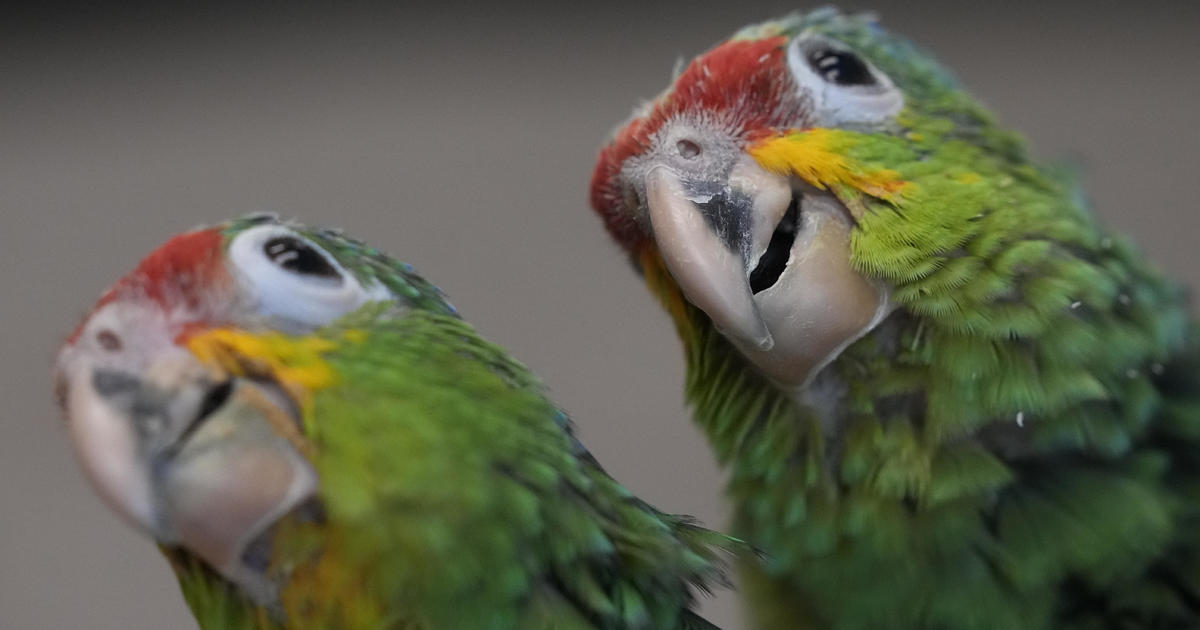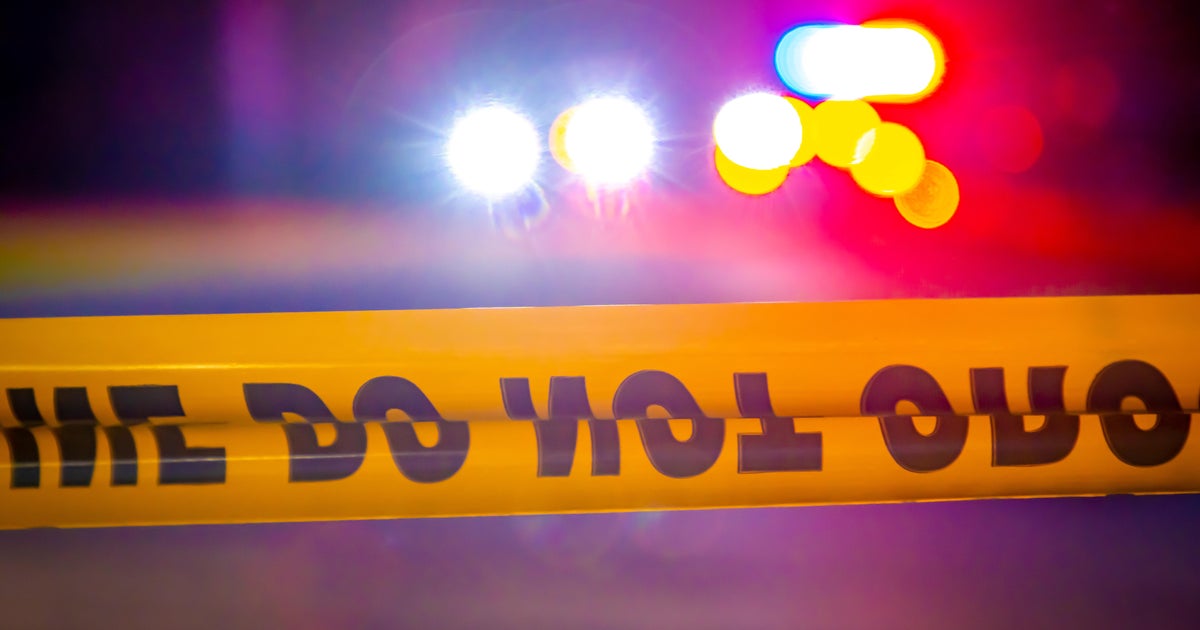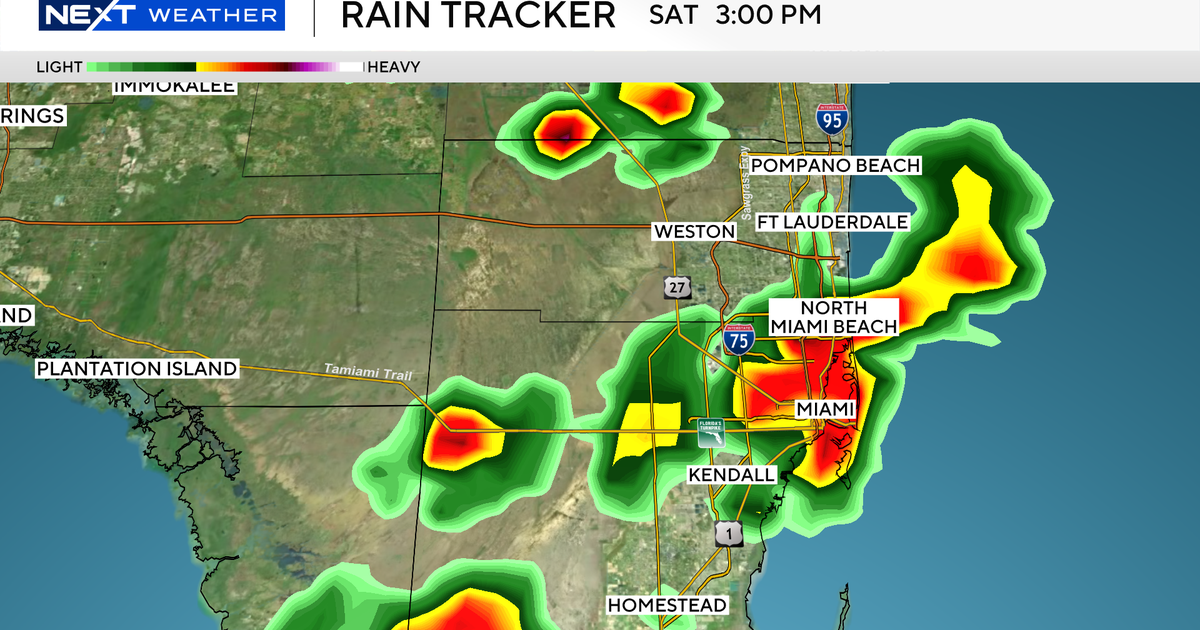MIAMI – The 24 bright environmentally friendly newborn parrots started chirping and bobbing their heads the second any person neared the big cages that have been their residences due to the fact hatching in March.
The Central American natives, seized from a smuggler at Miami Worldwide Airport, are being raised by the Uncommon Species Conservatory Foundation — a round-the-clock effort and hard work that contains five hand feedings a working day in a space crammed with big cages.
At just 9 weeks old, these parrots have now survived a harrowing journey just after being snatched from their nests in a forest. They are nearly totally feathered now and the team has begun transitioning them from a distinctive system to a diet regime of foodstuff pellets and fruit.
“You ready to fulfill the children?” requested Paul Reillo, a Florida International College professor and director of the foundation, as he led website visitors Friday into a tiny constructing tucked driving a sprawling household in Loxahatchee, a rural local community near West Palm Seashore.
“They are hand-lifted infants,” he explained, as the chicks squawked and appeared inquisitively at the readers. “They’ve hardly ever seen mother and father they have been elevated by us because they hatched.”
It was the hatchlings’ faint chirping inside a carry-on bag at the Miami airport that brought them to the notice of a U.S. Customs and Border Defense officer. The passenger, Szu Ta Wu, had just arrived on TACA Airlines flight 392 from Managua, Nicaragua, on March 23, and was changing flights in Miami to return residence to Taiwan, in accordance to a felony grievance filed in U.S. District Court docket in Miami.
Officers stopped Wu at a checkpoint. He was questioned about the sound coming from his bag, which Reillo afterwards described as a “refined” temperature controlled cooler.
Wu reached in and pulled out a more compact bag and confirmed the officer an egg, the criticism reported. The officer then seemed within and saw extra eggs and a very small featherless chicken that experienced just hatched.
He told the officer there had been 29 eggs, and that he did not have documentation to transport the birds, in accordance to the complaint.
Wu was arrested, and on Might 5 pleaded guilty to expenses of smuggling birds into the United States. He faces up to 20 several years in jail when he’s sentenced Aug. 1.
A law firm who could discuss on his behalf was not detailed on court docket information, but Wu advised investigators via a Mandarin interpreter that a close friend experienced paid out him to travel from Taiwan to Nicaragua to select up the eggs. He denied recognizing what kind of birds they have been.
The officer took the bag and contacted the U.S. Fish and Wildlife Assistance. By then, eight of the birds experienced now hatched or were being in the method of hatching.
It failed to choose prolonged for federal officers to get to out to Reillo.
“They did not know what these matters have been and required my advice on it,” Reillo reported. Little one parrots are featherless, so it really is tough to correctly detect them.
He aided set up a makeshift incubator in the U.S. Division of Agriculture’s aviary at the airport in a mad dash to preserve the now-hatching parrots.
The next day, Dr. Stacy McFarlane, a USDA veterinarian who in the beginning tended to the birds and eggs at the airport, and other officials, shipped the infant parrots and remaining eggs to Reillo’s conservatory.
“At that position we had been off to the races,” he mentioned. “We have obtained all these eggs, the chicks are hatching, the incubator’s managing and by the time it was all claimed and carried out, we hatched 26 of the 29 eggs, and 24 of the 26 chicks survived.”
USDA rules needed the birds to be quarantined for 45 days, this means that Reillo and his staff experienced to scrub down when getting into and leaving the space.
But they nonetheless weren’t guaranteed which of the 360 types of parrots they had been dealing with.
A forensics crew at Florida Worldwide extracted DNA samples from the eggshells and the deceased birds to discover the species. They identified the 24 surviving parrots were being from 8 or 9 clutches and included two species — the yellow naped Amazon and the purple-lored Amazon.
Each birds are well-known in the trafficking and caged-chook industries for the reason that they are very and have a great temperament, Reillo explained.
The trafficking pipeline out of Central The united states is well recognized and has long gone on for years, he stated.
“In point, the most significant threat to parrots globally is a mix of habitat decline and trafficking,” Reillo said, introducing that about 90% of eggs are poached for unlawful parrot trade.
BirdLife Global lists the yellow-naped Amazon as “critically endangered” with a population in the wild of involving 1,000 and 2,500. The crimson-lored Amazon is also outlined as acquiring a decreasing population.
“The broad greater part of these trafficking scenarios conclusion in tragedy,” Reillo said. “The actuality that the chicks had been hatching the very first working day of his vacation from Managua to Miami tells you that it is really very not likely that any of them would have survived had he actually gotten all the way to his vacation spot in Taiwan. That would have been one more 24 to 36 hours of journey.”
Reillo is now faced with the obstacle of obtaining a permanent dwelling for the birds, which can dwell 60 to 70 decades, or more time. He reported he is doing work with the U.S. Fish and Wildlife Products and services on a prepare “to have the birds fly free and help restore their species in the wild.”
“Parrots stay a extensive time. They are sentient creatures. They’re hugely smart, incredibly social, and these men deserve a opportunity,” he explained. “The problem will be where by will they wind up? What is their journey going to be? It is just beginning.”



